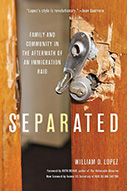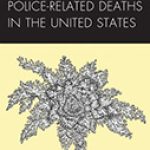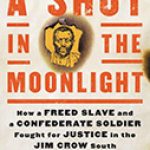Separated: Family And Community In The Aftermath Of An Immigration Raid

Author: William D. Lopez
Publisher: Johns Hopkins University Press, 2019. 232 pages.
Reviewer: Charles Oberg ǀ January 2022
Separated-Family and Community in the Aftermath of an Immigration Raid by William D. Lopez is a well-researched and beautifully crafted expose on the upheaval created by a singular Immigration and Custom Enforcement (ICE) raid in 2013. It provides an in-depth ethnographic account of the circumstances that both proceeded and followed the raid around the vortex of a terrifying and violent encounter with ICE and a local SWAT team in Washtenaw, Michigan. The theme centers on the arrest, detention and deportation of Santiago, an undocumented Latino who ran an auto repair shop or “taller.” This story is not only about the arrest and deportation of Santiago, but even more about his loved ones, such as his sister Guadeloupe, her children, and friends who also experienced violence that day and have suffered from ongoing pain and trauma. Multiple men were detained and placed in detention for variable periods of time. Some like Santiago were deported, while others were eventually released and others voluntarily returned to their birth homes in Mexico and Central America. The lasting consequences, however, were just as great for the women and children who remained behind after the raid. The multiple family members who lived in the converted space above the “taller” were left without adequate means to maintain their families and suffered through the trauma of witnessing the disappearance of their loved ones.
The author also explores the nature of this tragic set of circumstances for multi-status Latinx families in the larger socio-ecological framework of prejudice, racism, and exclusion in the United States, and the overall bias against brown and black communities. Following 9/11, the Department of Homeland Security was created and subsumed the Immigration and Naturalization Services (INS) that housed ICE. This led to the conflation of criminal and immigration law. The presumed premise of the initial raid described here was not an immigration case, but rather a law enforcement initiative in a search for weapons and drugs. False information was provided by ICE to local law enforcement resulting in a no-knock entry into the home, including a fully equipped SWAT team with guns drawn, smoke bombs deployed and the breaking down of the family’s door – and eventually with men led away in hand cuffs.
The families quickly reached out to the Washtenaw Interfaith Coalition for Immigrants Rights (WICIR) for help from a volunteer group of urgent responders. These types of community organizations provide immediate assistance to affected families. They can also provide an advocacy role in speaking truth to power to counter elements of society that perpetuate violence against marginalized persons and communities.
This book asks how we are to deal with families left with insufficient funds to meet life’s basic necessities. Some are left homeless and hungry. Others experience anxiety, depression, and Post Traumatic Stress Disorder (PTD) — all without mental health resources. Many lack adequate health coverage for unmet medical needs resulting from the trauma. The children experience a disruption that leads to missed days of schooling. Parents need to seek employment to provide their family with income. Where is the societal outrage for such injustice? Lopez provides a lens for all of us to look through and then reflect on our own personal indifference. He ends the book with a series of recommendations on how as individuals, communities, and society we can see the inequities and collectively plan for a more just tomorrow.
Charles Oberg, MD, MPH is a Professor Emeritus at the University of Minnesota


